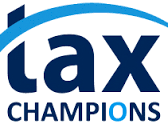Determining how much tax to pay during the year relies on a reasonably anticipated adjusted gross income. It also considers the anticipated taxable income, tax liability, deductions, and credits for the end of the current year. Refer to the income tax return you filed the previous year for this information.
The IRS understands that anticipating income is a lot like predicting the future, which is relatively difficult for most taxpayers. On the positive side, you don’t have to commit to one payment amount for the year.
If your estimations prove inaccurate as the year progresses, simply adjust your calculations. Just remember to inform the IRS of the updated calculations. Diligence in estimated tax payment calculations is critical to avoid costly penalties.
Remember to carefully consider significant changes within your business, as well as any changes or updates in the current tax law. If you’re not comfortable with calculating your own tax payments, you’re not alone. Consider hiring a trusted tax expert to determine the appropriate tax payments for you.
